Investigation: As Minneapolis Weighs Police Dept’s Fate, Records Show School Cops Had Lengthy History of Discipline, Civil Rights Complaints
By Mark Keierleber | October 27, 2021
Updated
As a talent show came to a close in the winter of 2007, hundreds of children and parents poured out of a Minneapolis high school only to be met by the piercing blast of gunfire.
North High School students and their parents rushed back inside and police raced to investigate the commotion. But the guns and bullet shells were nowhere to be found. A campus security guard who helped in the search, they’d soon learn, had already stashed them in his pockets and, later, his wife’s purse.
The weapons turned up that evening outside a gas station a few blocks from the school where the security guard, Kelly Woods, got into a heated altercation with his ex-girlfriend. Police, who observed witnesses screaming “They’ve got a gun,” arrested Woods at gunpoint.
For Woods, the arrest added to a lengthy criminal record, including drug trafficking, auto theft, armed robbery and a federal firearms conviction, which didn’t stop him from becoming a security guard in charge of protecting students. For police officer Charles Adams III, the security guard’s colleague at North High, the ordeal became part of his internal disciplinary record. When officials pursued fresh criminal charges against Woods, Adams pressed them to “go easy” on a man he described as a “good guy,” according to police records obtained by The 74. The move infuriated the lead prosecutor on the case. Assistant County Attorney Diane Krenz said it was the first time in her decades-long career an officer had pressured her to go lenient on a suspect, according to the records. The last thing the community needed, she said, were “more guns on the North Side.”
The incident linked to Adams — the decorated North High School football coach and now-former cop with a national reputation — is included among dozens of allegations and disciplinary findings against campus police officers recently stationed inside Minneapolis public schools that include claims of police brutality, racial discrimination and domestic violence.
In one incident, officers were accused of beating and arresting a man for carrying a handgun despite having a concealed carry permit. In another, police were accused of pounding in a man’s face because he littered the crust from a slice of pizza. Both incidents ended with court settlements, a common outcome in police brutality lawsuits against Minneapolis officers that has cost taxpayers millions of dollars. The city paid $235,000 in 2010 to settle a lawsuit after a man said at least six officers punched, kicked and tasered him during a traffic stop. One of the accused officers became a school-based cop, a position he held until last year.
After George Floyd was murdered in 2020 at the hands of a Minneapolis officer, the city school board was quick to end its longstanding contract with the police department for campus cops, a move that some critics said was politically motivated. Floyd’s death put a national spotlight on police brutality and excessive force. The 74 obtained public officer misconduct records and court files to explore whether similar interactions between police and students had transpired in Minneapolis classrooms — and if such incidents may have contributed to the school board’s decision to cut ties with the department. Ultimately, few of the records involved on-campus incidents or youth, but the lengthy list of allegations and disciplinary findings — many alleging violence on the part of police — raised separate questions about how the officers wound up inside schools in the first place. They also offer new context for an ongoing national debate about the role police should play in schools and whether they’re best equipped to ensure students are safe.
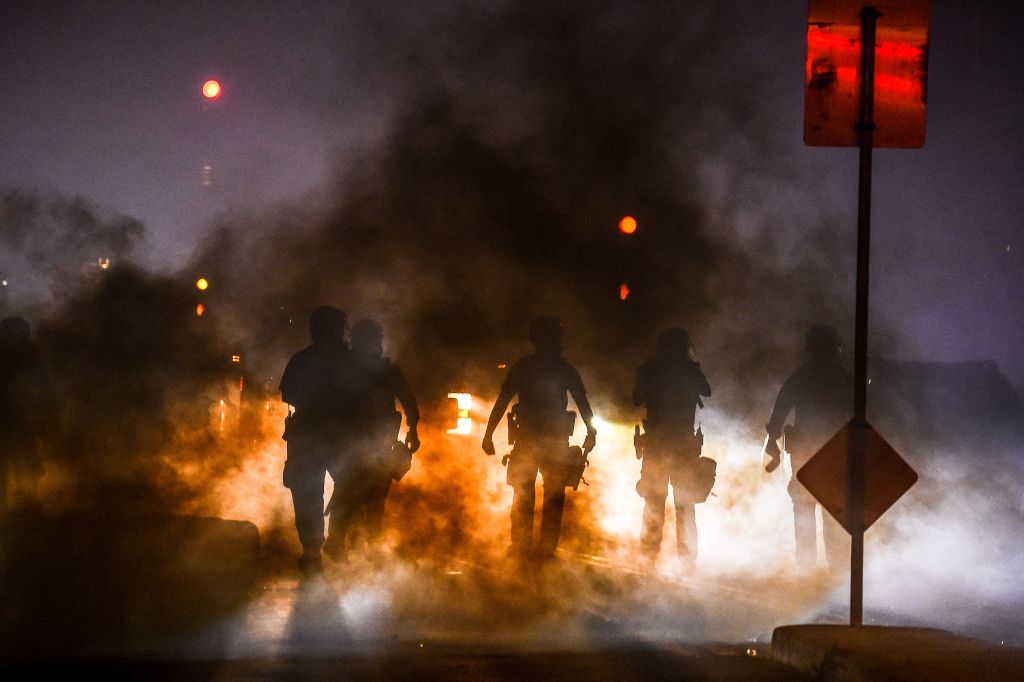
Ben Fisher, an assistant criminal justice professor at Florida State University whose research focuses on the efficacy of school-based police, said the Minneapolis officers’ disciplinary and court records “seemed quite problematic.”
“Schools contain some of our most vulnerable people in society,” Fisher said. “If we are putting officers in there who have abused their power in some way outside of the school, it’s a very scary proposition to imagine that track record following them into schools.”
Minneapolis Police Department spokesman Garrett Parten said officers’ disciplinary records were considered before they were stationed inside schools, but he declined to comment on specific allegations or findings against officers. School resource officers took the job to build trust between youth and police, serve as positive role models and ensure children could learn in a safe environment, he said in an email. Effects of the school board’s decision to end the school resource officer program, he said, “will become evident over time.”
Dozens of school districts across the country severed their ties with police after Floyd’s murder, but broader police reform efforts have so far faltered. In Washington, legislation that sought to improve transparency around officer misconduct and make it easier to prosecute bad cops, among other changes, failed as bipartisan negotiations broke down.
Locally, Minneapolis voters will consider a ballot question next week that could remove from the city charter a police department that’s long been accused of sweeping officer misconduct under the rug. As the school district navigates its first year without a full-time police presence in classrooms, the unprecedented ballot measure would create instead a city Department of Public Safety that would use a “comprehensive public health approach” and employ police officers only “if necessary.”
National industry “best practices” recommend collaboration between police and education leaders when stationing officers inside schools, but researchers who study the efficacy of school resource officers said that little evidence exists about how such selection processes actually work. Anecdotally, the job is highly regarded in some districts and officers compete for the position, Fisher said. In other places, being stationed in schools is “a punishment where police are put there if they can’t cut it on the streets.”
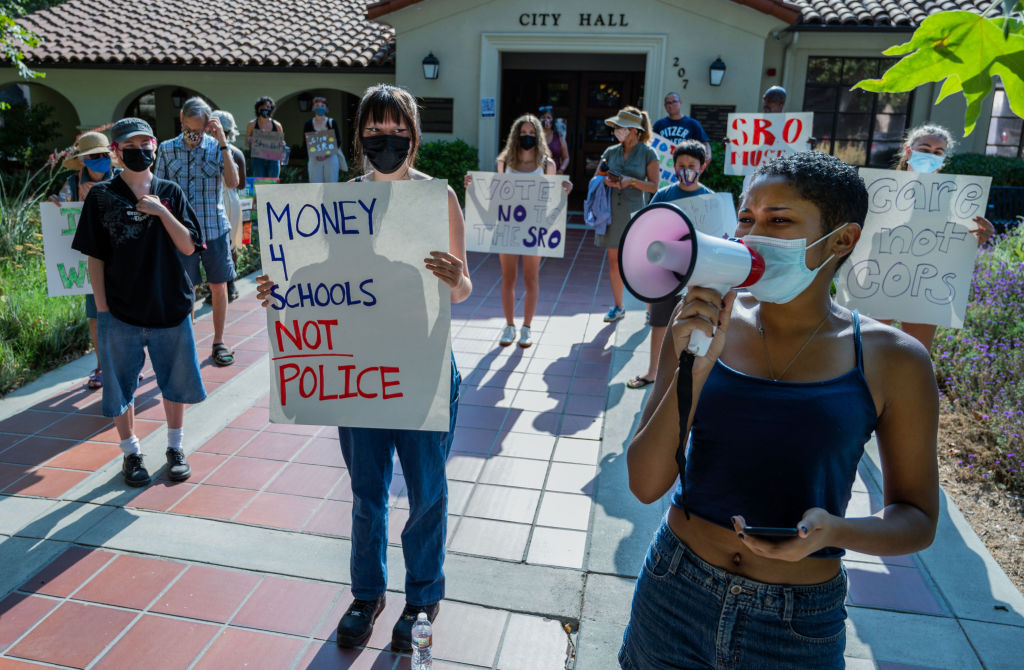
‘Completely out of control’
The 74 obtained Minneapolis Police Department misconduct records for the 24 officers assigned to public schools for the five years prior to Floyd’s murder. Of those, 21 officers faced 105 internal complaints, 11 of which resulted in discipline of varying severity. Those records span the duration of officers’ employment with the department. Separately, the officers stationed in schools were named in federal lawsuits on at least two dozen occasions, according to an analysis of court records.
The police disciplinary issues range in seriousness. One officer who worked in the schools was cited in 2019 for unintentionally firing his service rifle while responding to a call about a man with a gun, and another was given a letter of reprimand after getting arrested for driving under the influence of alcohol. In two of the 11 cases which resulted in official department action, officers were disciplined for using excessive force.
About half of the Minneapolis officers who were sued or disciplined remain on the force, according to a department spokesperson.
Among them is Mukhtar Abdulkadir, who has faced 11 internal complaints — two that resulted in discipline — and two federal lawsuits. He reported to work as a school resource officer as recently as 2017, district records show. Records suggest the officer has a tendency to respond violently when under stress.
In 2010, a young Ethiopian immigrant accused Abdulkadir of choking and punching him and calling him a racial slur after he was pulled over and cited for riding a bike at night without a light, a citation the man called “stupid.” A federal lawsuit following the incident was ultimately settled. Abdulkadir and his attorneys couldn’t be reached for comment.
In 2011, Abdulkadir was arrested on assault and terroristic threat charges after his then-wife accused him of punching her in the ribs, smothering her face with a pillow and hitting her in the face with the butt of his service pistol. Abdulkadir was fired for the incident but was rehired with back pay after his former wife retracted her allegations. Yet according to his disciplinary file, internal investigators believed her decision to recant was obvious: “Only if he is reinstated will she obtain child support when they divorce.” Additionally, internal records note that domestic abuse victims often “take the blame” because their abusers maintain control over them.
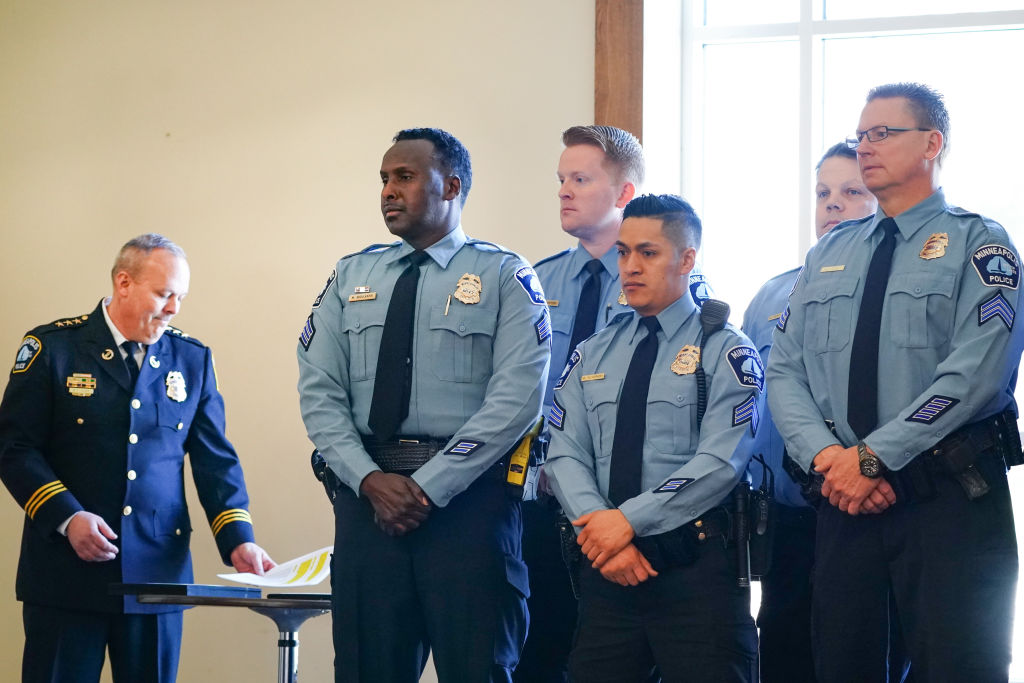
Abdulkadir was also accused of repeatedly punching a man outside a car wash in 2013. The man honked at the officer because he was next in line at the automatic car wash but hadn’t moved forward, according to a complaint in a federal lawsuit. In response, Abdulkadir was accused of punching the man repeatedly before charging him with disorderly conduct, according to the lawsuit that also ended with an undisclosed financial settlement.
Then, in 2014, Abdulkadir was reprimanded for becoming irate after he failed firearms training. Officers who witnessed the outburst reported feeling afraid because he “was completely out of control” and had easy access to a gun.
“That night I truly believed that at any time he could grab his weapon, load it and use it against officers,” a police sergeant told internal investigators. In a less controlled environment, the sergeant said he could see a situation where Abdulkadir would “completely lose control of everything and harm himself, other officers or the public.”
District records show Abdulkadir was assigned to Minneapolis campuses a year later, including Andersen United Middle School and Seward Montessori School.
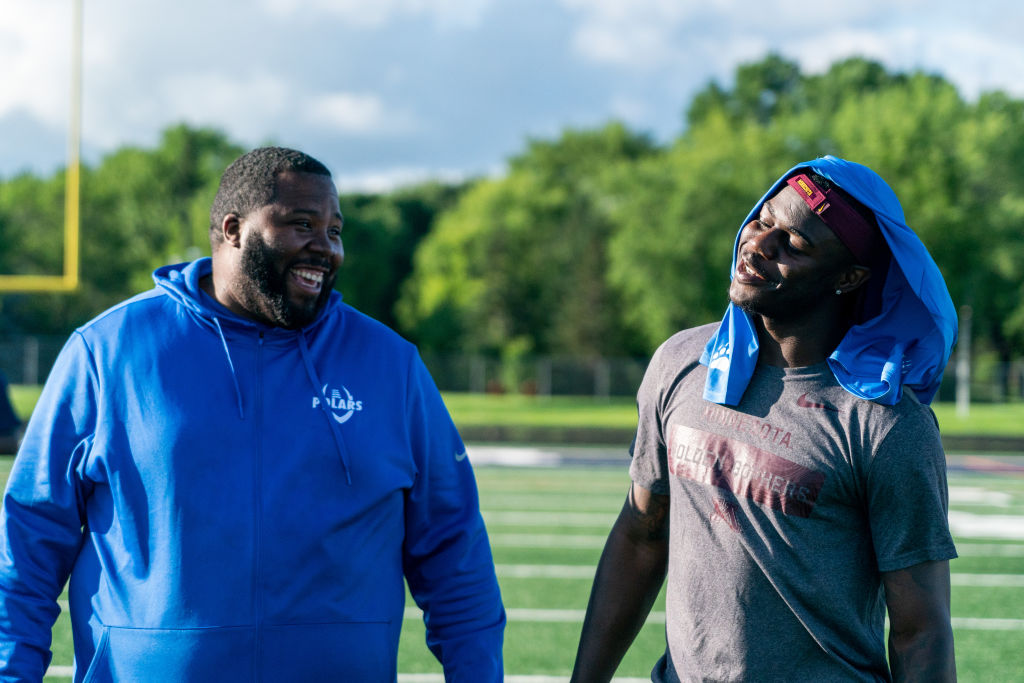
When officers protect their own
The disciplinary findings against Adams put the storied coach and second-generation Minneapolis cop on defense, a position he isn’t used to playing. After the school board voted to break with the police department, some students at North High School, the predominantly Black school where Adams worked as a school resource officer, rallied to support him. So did the school’s principal.
On two occasions after Floyd’s murder reinvigorated the Black Lives Matter movement, The New York Times examined how his roles as a football coach and a Black police officer placed him on both ends of the debate on policing in America. As Adams told a local newspaper, “I wear blue, but I’m Black.”
The records suggest that Adams, who left the police department last year and is now head of team security for the Minnesota Twins, was willing to go to great lengths for a colleague accused of a serious crime, a reality he acknowledged in an interview with The 74. Woods, the North High School security guard, and his attorney couldn’t be reached for comment.
“I stood up for him as a character,” Adams said. “I never said that it was OK for what he did.”
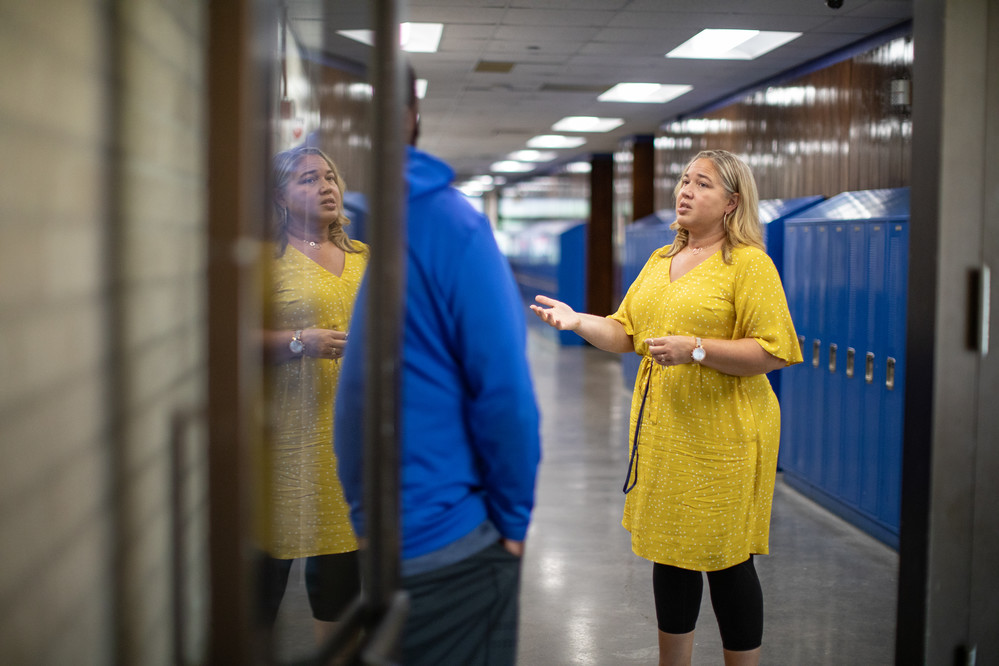
North High School Principal Mauri Friestleben, who has been outspoken against the school board’s decision to cut ties with the police, similarly stood behind Adams. With officers in schools, she said she witnessed a “healthy discourse about what real protecting and serving looked like,” including situations where campus cops helped students avoid arrests. “I have no reservations about my public support” of Adams, she wrote in an email, and called the officer “a protector” who came to the job “with multiple dimensions and this may be just one of them.”
Adams sought to downplay his own disciplinary record, arguing that police leaders and prosecutors overreacted to his intervening in Woods’s criminal case. Prior to becoming a school security guard, Woods was convicted of armed robbery in 1992 and became ineligible to possess a firearm. Six years later, police arrested Woods with a gun outside a Minneapolis Greyhound bus station. Woods, who is Black, unsuccessfully accused the officers of racial discrimination when they stopped him while investigating drug and gun trafficking, according to court records.
Adams said that Woods was a positive force in the community and shouldn’t be defined by the years he spent in prison. After the shooting outside North High, Woods wasn’t trying to keep the guns for himself, Adams maintained. Instead, Woods knew the students involved in the shooting and didn’t want them to get arrested. Woods recognized them as gang members, according to court documents.
“I took it as him looking out for those two kids,” said Adams, who added that he didn’t observe the shooting himself. “He took [the guns] from them and said ‘Get out of here,’ one of those types of deals because that’s just the type of person that he is.”
Adams scoffed at the suggestion from Krenz, the prosecutor, that his defense of Woods conflicted with his role in keeping the community safe. Krenz declined to comment for this article. Adams said she wouldn’t know where North High was if it “smacked her in her face.”
“I don’t want to hear that,” Adams said. “I hear so many people talk about what should be good for our community. They have never stepped one foot inside of it.”
‘Good ol’ boy network’
Internal police records obtained by The 74 likely offer a significant undercount of officer misconduct. Just 2.7 percent of complaints resulted in discipline between 2013 and 2019, according to a recent investigation by the Minnesota Reformer, a nonprofit news outlet. After lengthy investigations, disciplined officers often received letters of reprimand or brief suspensions.
A pattern of officers protecting their peers allowed abuses to remain under the radar until it went to court, the investigation found. Three years before he murdered Floyd, for example, Derek Chauvin hit a 14-year-old boy with a flashlight and pinned him to the ground for 17 minutes. The incident, which could be seen as a precursor to Chauvin kneeling on Floyd’s neck, is excluded from his public records.
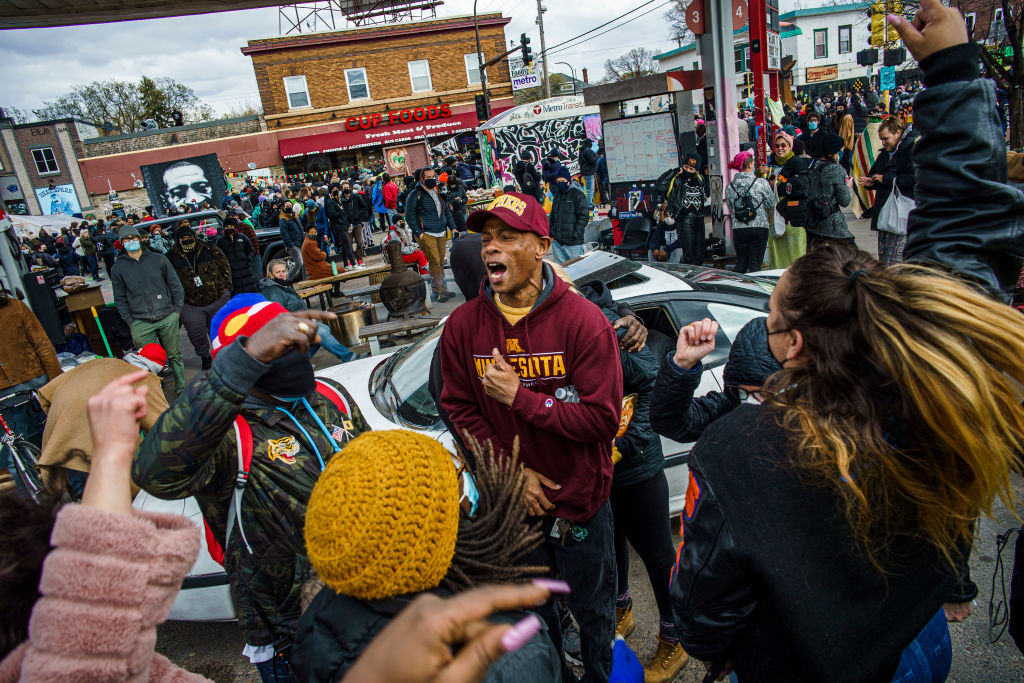
The 74 sought comments from Minneapolis officers previously stationed inside schools, school board members, the city and state police unions, an attorney who represents many officers in misconduct litigation, the city and the county attorney’s office. Each declined to comment or didn’t respond to interview requests.
Among the lawsuits against officers placed in schools, civil rights attorney Zorislav Leyderman represented the plaintiffs in six. Police misconduct incidents that occur outside schools, he said, should influence whether those involved are assigned as school resource officers. Leyderman cited the allegations as contributing to a larger culture in the city where many Minneapolis residents fear the police.
“They don’t want to interact with law enforcement because they’re worried that if they do, they’re going to get injured,” he said. The allegations against the officers stationed in schools “should have been looked into, both the lawsuits and these internal complaints.”
Oftentimes, he said police misconduct remains outside the public eye because officers are “coached” following incidents, a practice the department has maintained isn’t a form of official discipline. The department was sued and accused of illegally withholding misconduct records, including in cases of serious wrongdoing. In a 2015 U.S. Department of Justice report, investigators found that Minneapolis police used coaching to resolve more than a quarter of complaints over a six-year period.
Local parent advocate Khulia Pringle, who helped the school district hire security staff to replace sworn police last year, said that officers’ disciplinary records should be a major factor when placing them inside schools. However, that history only reinforced her belief that police have no place walking hallways.
“In any other situation, when we need the cops, we call them,” said Pringle, a Minnesota-based representative of the National Parents Union. If they’re going to be there, there “should have been more protocols in place as to which officers are in schools,” she said.
Adams said he was surprised to see the allegations against other police officers who worked in the schools, and although negative interactions between cops and youth have occurred, he couldn’t recall any recent instances that could’ve motivated the school board’s decision to end its police contract. Yet Adams, who said he can “speak freely” now because he’s no longer a cop, portrayed his former department as one where officer misconduct is routine.
“It’s the good ol’ boy network,” he said. “You’ve got guys who are in the police department that treat people wrong on purpose and you can see it.”
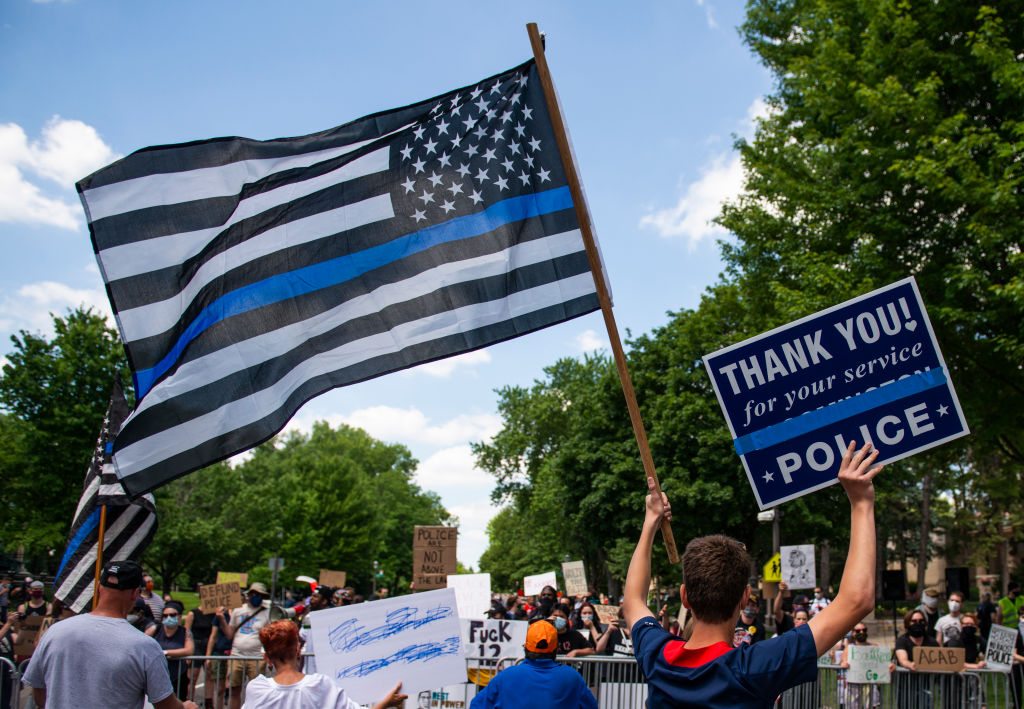
‘Part of the game’
As communities across the country grapple with the role police play in schools, new research serves to highlight the issue’s complexities. On one hand, the officers reduce some forms of violent crimes like fights, according to the research. At the same time, their presence prompts a dramatic uptick in suspensions and arrests — especially for students who are Black. Little academic research explores the types of officers who are more effective than others in schools.
But being named in a federal lawsuit shouldn’t be automatically disqualifying, said school safety consultant Kenneth Trump, president of National School Safety and Security Services in Cleveland. Filing civil rights lawsuits against an arresting officer is all “part of the game,” he said. Police misconduct suits often end in settlements, yet Trump said the final results should become part of the equation when making school resource officer assignments.
“If you’re a police officer and you’re doing your job on the streets, there’s a really good chance you’re going to get sued somewhere in your career,” said Trump, a proponent of school-based policing. “But there should be some sort of baseline criteria and screening set by your police administration before that pool of officers is ever presented at that next step to your school people.”
Parten, the Minneapolis police spokesman, said that all officers were eligible to apply for the school resource officer program and were interviewed by a panel of police department and school district officials. The police chief had the final say in hiring decisions. Parten said he collaborated with education officials when crafting a statement for this article, but Minneapolis school district spokeswoman Julie Schultz Brown didn’t respond to multiple requests for comment.
“Candidates were presented with scenario-based questions designed to evaluate critical thinking skills necessary for a school setting and further examined each individual’s understanding of the challenges and rewards associated with the position,” he said.
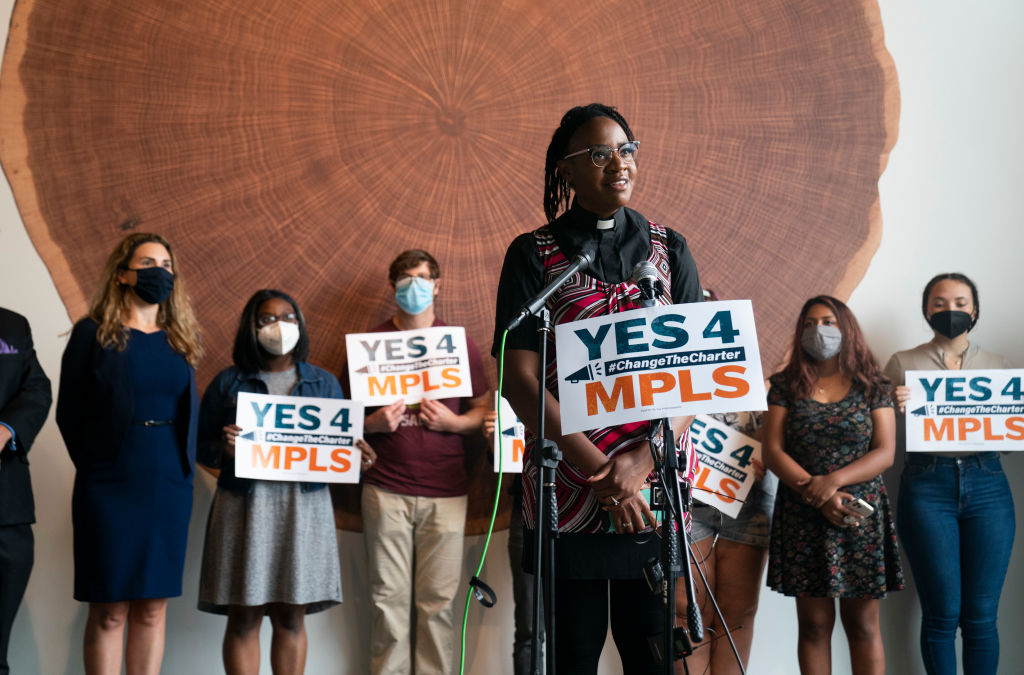
Policing in Minneapolis remains contentious in the larger community, and voters will soon decide whether to go in a completely new direction. Ahead of next week’s election, a recent poll of likely voters suggests the question of whether to dismantle the traditional police department will be close. Black voters were less likely than white voters to support the idea.
A similar course change — to remove cops from Minneapolis schools and replace them with district security staff — was ultimately detrimental, Adams maintains. “Crime is outrageous” at North High School, he said, and the security team hired to replace sworn officers is “stretched thin.”
And even though he defended a security guard who he said sought to keep kids out of the criminal justice system, the former cop said stationing police in schools was an effective strategy to catch suspected criminals.
“A lot of kids would obviously show up to school and investigators and a lot of police knew the kid would be there,” Adams said. “That was a good way to get bad guys.”
Lead Image: Former police officer Charles Adams III’s actions to intervene on behalf of a school security guard arrested on gun charges are among dozens of disciplinary findings and misconduct allegations involving campus police officers recently stationed inside Minneapolis public schools. (Andrea Ellen Reed / The New York Times / Redux)
Get stories like these delivered straight to your inbox. Sign up for The 74 Newsletter


